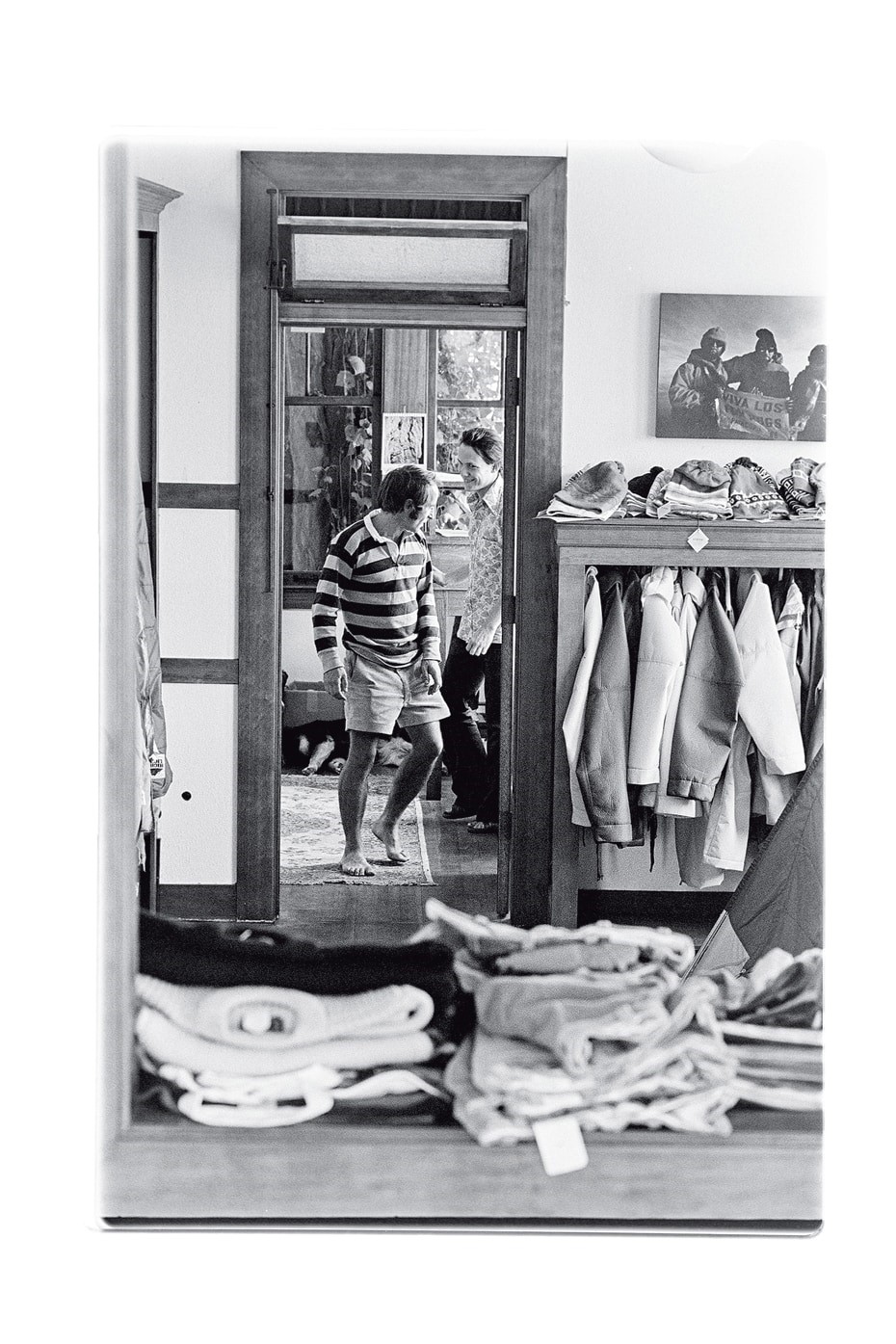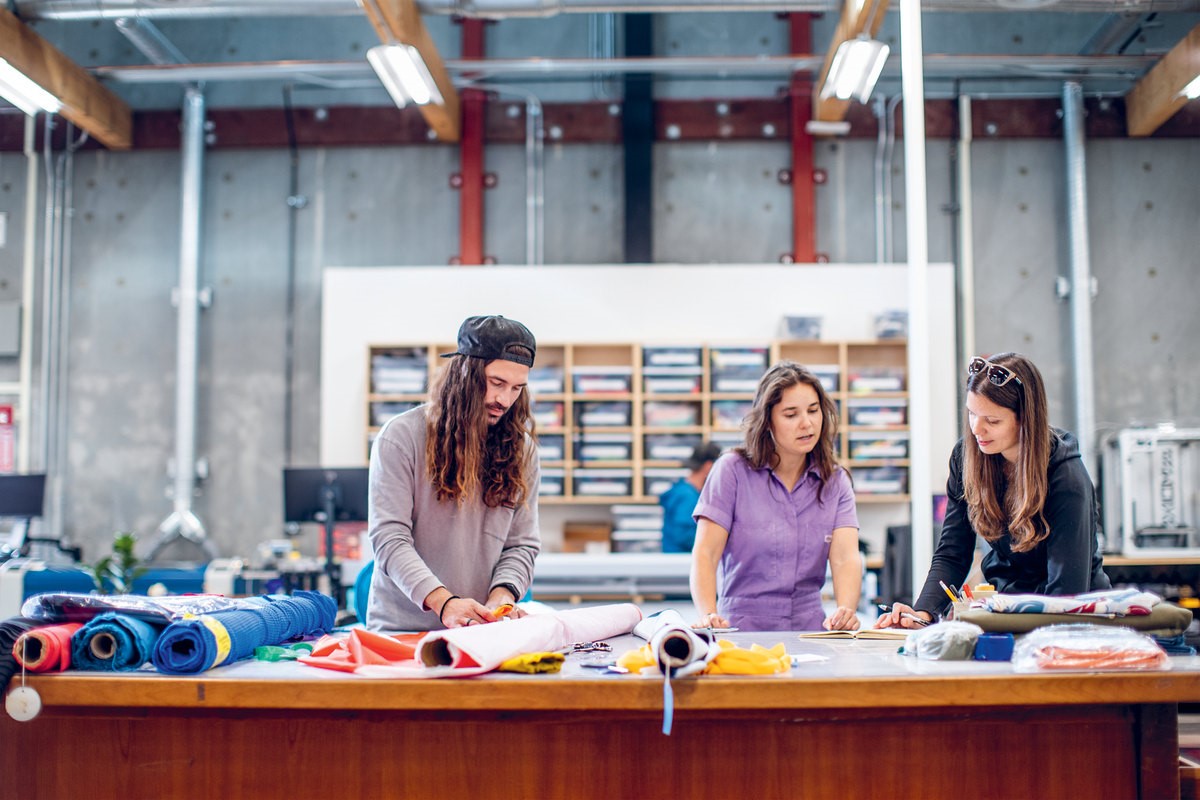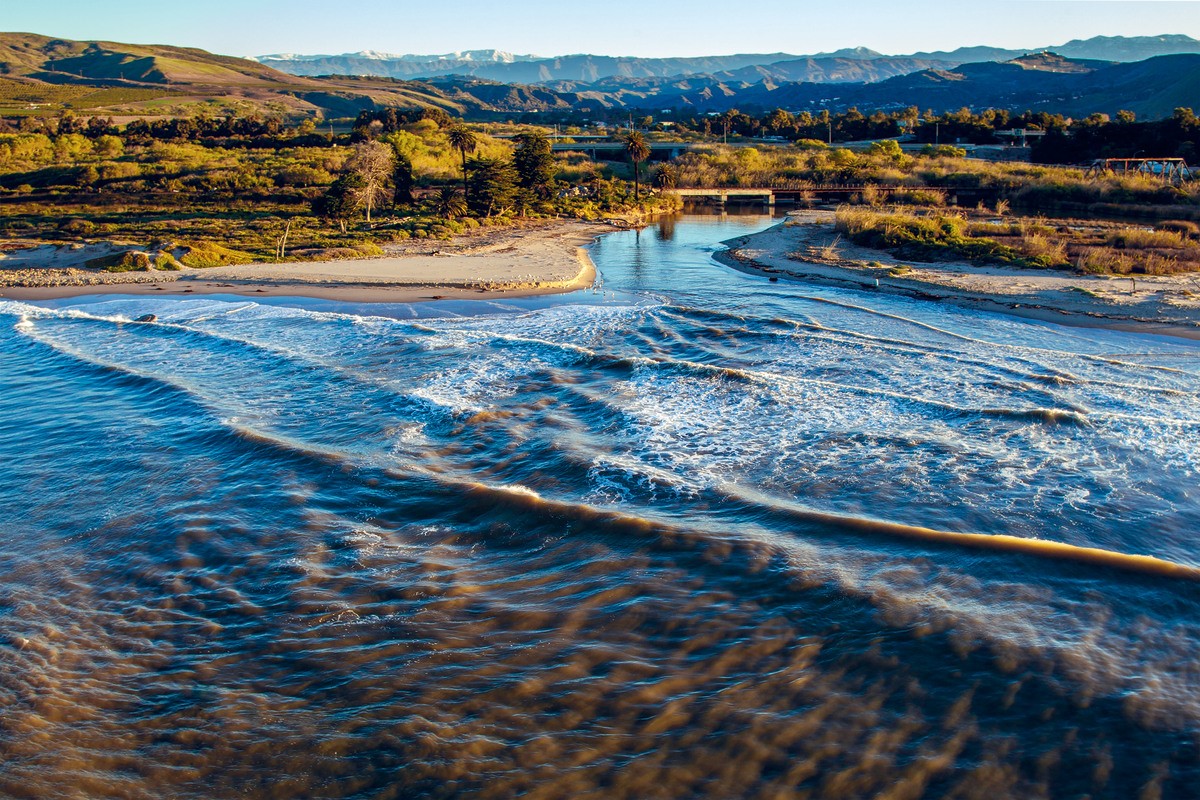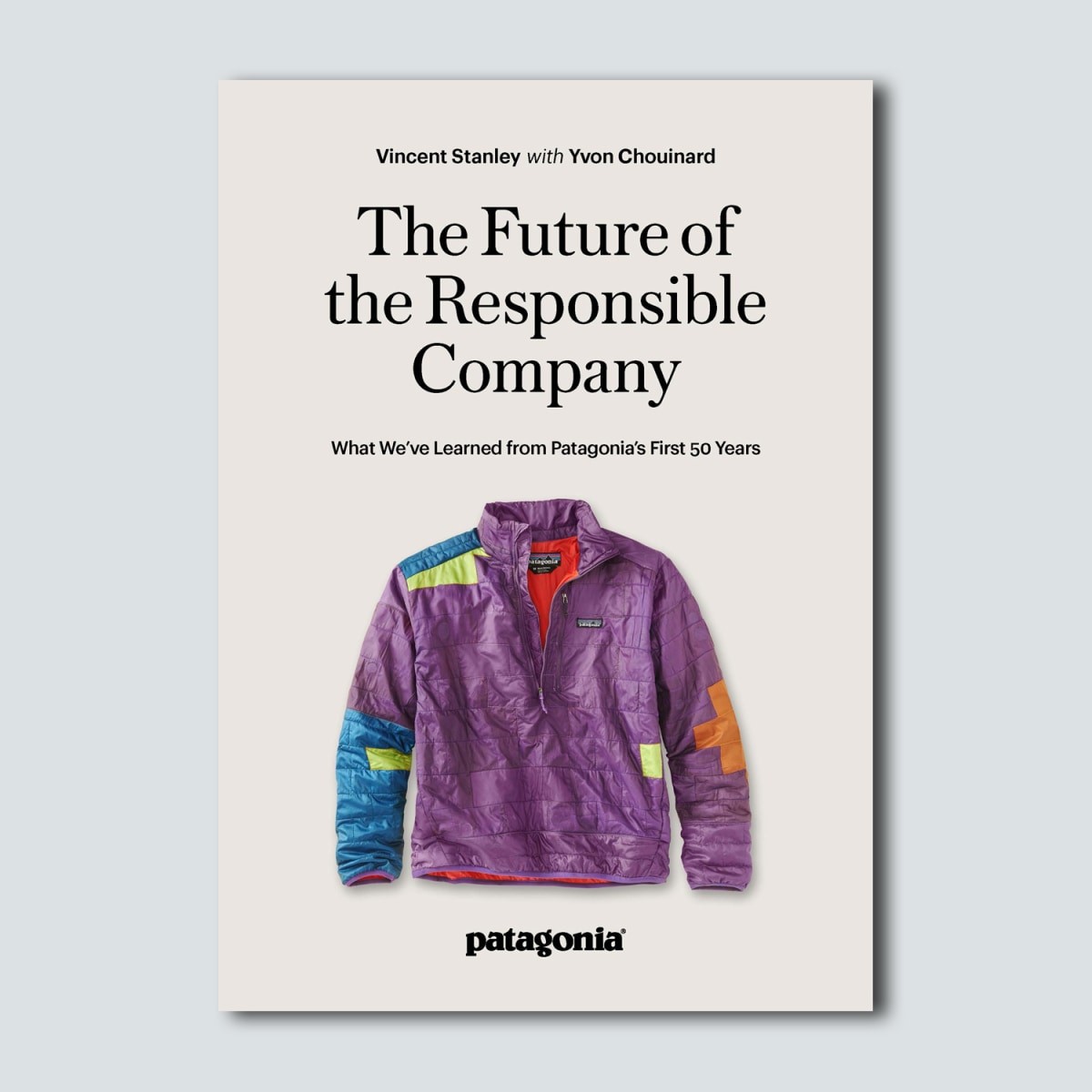‘Doing the right thing made money, just not the next day’: Lessons from Patagonia’s first 50 years
Fifty years ago, I had lunch with Patagonia founder Yvon Chouinard at Myrt’s Cottage Café, a greasy spoon a block away from the shop, staffed by waitresses who, for decades, had served biscuits and gravy to workers in the nearby oil field. Johnny Cash may have come here for coffee and a smoke in the 1950s, when he lived up the road and played the honky-tonk across the street.
At the time of our workingman’s lunch, Yvon was paying himself $800 a month and I, his 21-year-old nephew, was making $2.25 an hour to answer the phone, pack boxes, and type invoices. As a non-surfer, I was one of two people left in the office whenever the waves were firing.

Over lunch at Myrt’s, we tried to figure out what it took to make a living selling apparel in the United States. We talked about doing what people were telling us we had to do to become more of a real business—hire reps, issue catalogs, exhibit at a trade show, maybe take out a couple of ads.
At one point, Yvon said, “If I did everything right, did everything the experts say I have to do to succeed in business, I’d go broke.”
Fifty years later, we’re discussing what a responsible company does or doesn’t do. A company that aims to be socially and environmentally responsible has the same primary duty as any other company: to pay its bills on time. It cannot honor its other responsibilities unless it meets its first responsibility: to be financially fit.
That said, shareholder return shouldn’t be piratical. Profit as the sole purpose of a business enterprise is no better for the business’s health than it is for the health of the planet. Excess profit raked from the table by shareholders comes at the expense of investment in employees, systems, and R&D and leaves a company dependent on growth to make up the difference.
But the balance sheet still counts. As does continual investment in product innovation. This is key for companies seeking to improve their social performance and reduce their environmental impact. You can’t do what lazy companies do: bleed suppliers for cost reductions to achieve greater efficiency or use cheaper but more environmentally harmful, often labor-exploitative, materials.
At Patagonia, many of our environmentally beneficial moves—beginning with the switches from pitons to chocks and conventional to organic cotton—lost money for a time, but then became a strong new source of profit. Doing the right thing made money, just not the next day. We initially viewed these moves as risks we were willing to take; in hindsight, they were investments.

Responsibility to your workers
To fully engage workers and minimize bureaucracy, larger companies must figure out how to best organize productive working groups. Twelve is a good number for a small group to bond and work in concert to achieve a specific task with minimum hierarchy (think of a jury, a tribal hunting party, or an army squad). Anthropologist Robin Dunbar cites 150 as the magic number for community cohesion, based on the number of human relationships the human brain can handle.
At Patagonia, we’ve noticed changes in cohesion when we move different departments to different floors and buildings. Adjacency matters: Situating our environmental team next door to the CEO engendered a certain dynamic; the CEO at the time became more environmentally educated and committed. When the enviros moved next to marketing, our storytelling improved.
Informality has informed our business from the start. Chouinard Equipment for Alpinists, Patagonia’s predecessor, was a throwback to the early Industrial Revolution. Our blacksmith shop housed equipment: a drop hammer, an anvil, a coal forge, jigs for drilling aluminum chocks, but no time clocks or assembly lines. Everyone was poor and most lived marginal, if well-traveled, lives. For a while, we paid a 10% bonus to anyone who took the initiative to work 40 hours a week, a practice that turned out to be illegal; we were busted and required to stop. We partied heartily. The sheds faced a courtyard where we celebrated almost any event with an asado of barbecued lamb and a keg.
When we became a clothing company, and as sales increased, we had to become more professional. We paid fairly well, considering the inexperience of our employees. We provided health insurance, although we didn’t have to; introduced childcare and parental leave; never made anyone “dress” for work (although new hires from the professional world had to learn how to dress down to fit in). People were free to take a long break midday to go surf or run, with the understanding that they’d come in early or stay late if needed to get the work done.
Our worst day as an employer came in 1991, when we laid off 150 employees. For two years we had managed the company too carelessly, bought too much inventory, sold too little of it, hired too many people, and salted away too little money to pay for an expansion that our bank cheerfully financed until they got into troubles of their own and pulled the plug. Costs had to go down and fast. After weeks of considering alternatives, we let go of 20% of our people.
We should note the bracing fact that, right after the layoffs, morale improved among the workers still with us. The hovering ax had fallen; those of us left still had our necks. We were a much more sober lot, absent the intoxication of growth, and more focused. We knew what we had to do to bring the business back to financial health, and we did it.

Responsibility to the community
Your community comprises people living in proximity to your company and all those who supply it, wherever they live. The responsible company is a local asset wherever its people gather for work in offices, stores, warehouses, factories, and fields and orchards. A company’s obligation to the community includes paying its fair share of taxes to support the services it relies on from the community (in schools, roads, utilities, health, and safety). A responsible company supports civil society with cash donations and in-kind contributions of products or services.
What businesses do matters to communities. A company’s decision to put down roots or pull out directly hurts or helps the local citizens. Every company needs to ask itself: Where are we local? And what are our obligations to those places we call home?
Patagonia’s homes are wherever we have a concentration of employees—as we do in Ventura, Reno, Yokohama, and Amsterdam—and to a lesser but significant extent, wherever we have stores, more than 70 locations worldwide. We help make each store local by giving it an annual budget for grants to local environmental groups; recipients are determined by employee vote. Although we’re not a significant employer for any community except Ventura and Reno, we are mindful in all our satellite locations of how what we do affects local housing, traffic, infrastructure, water, and habitat. Along with maintaining relationships with local environmental groups, we participate in beach and creek cleanups and habitat restoration.
As climate change’s consequences become impossible to ignore, let alone deny, we also know that wealth itself cannot fully protect anyone from droughts, floods, and wildfires. Nor can wealth alone restore our oceans, rivers, and soil to health. Corporate shareholders will eventually, if in many instances begrudgingly, have to honor and act on what Haida leader Gerald Amos called “the right to be responsible.”

Responsibility to nature
Nature decides our fate but has no voice of her own, at least not one that we hear. In the face of nature’s silence, business must honor the “precautionary principle,” now embedded into law in the European Union and other countries; it states that, in the absence of scientific certainty, the burden of proof that a new product or technology is safe now falls on business.
The precautionary principle obliges us to reverse our centuries-old habit to act now and deal with the consequences later. Its corollary, the Science Based Targets initiative, provides 3,000 participating companies with a methodology for reducing greenhouse gas emissions in line with COP21 goals.
We know instinctively we are not superior to nature, but our language says otherwise. We refer to nature as “resources,” as if it were at our disposal. We call nature our “environment,” as if nature were here to wrap itself around us. We call ourselves “stewards,” as if we have been ordained to be nature’s keeper, a big key dangling from our neck, a white towel slung over the arm.
The task for all of us during the next half century will be to scale the industrial model down rather than up. There are strong reasons to decentralize the energy grid so that when a crow fries a transformer in Alberta, it doesn’t silence a sound stage in Los Angeles. And there is no reason to believe that a corporate monoculture is any healthier for economic life than agricultural monoculture is for ecosystems.
Rising costs will constitute their own pressure on companies to adopt more diversified, locally driven practices. Expenses will rise for natural resources (especially energy and water) and for waste disposal. Companies, not individuals, generate 75% of the trash that reaches the landfill or incinerator. Packaging, for which companies are responsible, is disposed of almost instantly by the consumer and makes up a third of all waste.
In the coming decades as customers become more insistent on companies being responsible, environmental laws (we hope) become more restrictive, resources become less plentiful and more costly, and more investors demand sustainability, companies will face competitors who embrace all the elements of business responsibility—not always because it’s the right thing to do, but because it is essential to their success. Eventually, the business world will recognize that the economy revolves around nature, not the other way around. As we destroy nature, so we destroy our economy.
Responsibility to society
A company can do many things right for these stakeholders and, alas, still be irresponsible. Imagine a business that returns a tidy profit, treats its employees well, makes the best-quality product possible, gives generously to the community, rebuilds its headquarters to LEED or Living Building standards and throws in a rooftop garden—but makes landmines. The company doesn’t make them in the United States, where it has been illegal to make land mines since 1997, but offshore, through its supply chain.
Many companies, some highly admired in the pages of business journals and on Wall Street, make things like cigarettes, the Cadillac Escalade, Lucky Charms, hollow-point bullets, baby toys containing endocrine-disrupting phthalates, and lead-containing lipstick. Some behave responsibly in important ways, then hire teams of lobbyists to promote the good they do and discredit the worthy science that exposes the wrongs. These companies export dirty products (toxic food, cosmetics, chemicals) banned by the European Union to other countries that still allow them. But it’s not enough for companies to argue that they’re simply meeting customer demand where it’s legal to do so. The Sackler family donated significant sums to the arts even as they made and dishonestly marketed OxyContin as not addictive. They can’t repay the damage done through philanthropy. If you make a bad product or sell a risky one, regardless of your good actions or policies, it’s bad business.

Excerpted from The Future of the Responsible Company: What We’ve Learned from Patagonia’s First 50 Years ©2023 by Vincent Stanley with Yvon Chouinard. Reprinted with permission from Patagonia.
(25)



